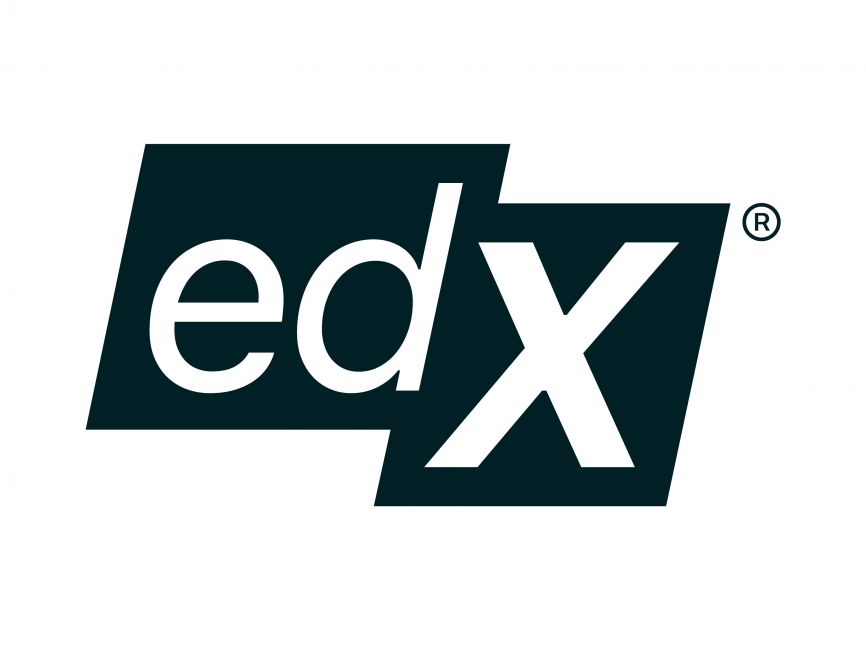At times, it can certainly feel that AI is taking over, from finding your social media news feed bombarded to discovering that your workplace is integrating new productivity AI tools into workflows. AI has quickly gone from a futuristic idea to a daily reality that’s integrated into our lives and society. As someone who works in the IT industry, this rapid change has left me asking the question: “How do I keep up?”
One of the best ways to keep up with new trends is to embrace learning a self-paced course; there is so much choice available online or in the classroom. Generative AI is a popular subject, but there are countless courses available (paid and free online courses) that introduce you to this fast-changing new technology.
This article will save you plenty of online searching and point you directly to what we think are the top online courses for AI. We will review free examples and paid content, from courses that will teach you the basics to classes that go beyond just the introduction, can transform your knowledge, and maybe even help you become a top talent in a new business or organization.
Leading Platforms for AI Education
Now let’s take a look at the leading online courses for AI. With so many courses out there, it can be tough to know where to start. From huge, multi-course programs to quick lessons on a single tool, there’s something for everyone.
To help you choose, we have broken down the best and most respected platforms for learning AI.
#1: Coursera
Coursera has established itself as a top resource for online learning, collaborating with over 200 leading universities and companies to offer a vast catalog of courses, specializations, and degrees.
Think of it as a one-stop shop for learning and business training.
Its offerings in artificial intelligence are particularly good, featuring content from all the major players in the industry.
Advantages:
- Extensive selection of AI courses, from beginner to advanced levels.
- Specializations and Professional Certificates offer a structured learning path.
- Courses are often developed and taught by renowned university professors and industry experts from companies like Google and IBM.
- The platform’s user-friendly interface and mobile app make learning accessible.
- Many courses include hands-on projects, allowing students to apply their knowledge to real-world applications.
Disadvantages:
- While many courses can be viewed for free, earning a certificate and accessing graded assignments requires payment.
- The sheer volume of courses can be overwhelming for beginners to navigate.
- The quality of peer-graded assignments can sometimes be inconsistent.
Ideal for:
- Learners seeking a structured education in machine learning, deep learning, or broader data science.
- Individuals who value credentials from top universities and tech companies.
- Professionals looking to earn a recognized certificate to enhance career prospects.
Recommended Courses:
- Machine Learning: Supervised Machine Learning: Regression and Classification
- AI For Everyone
- Generative AI for Everyone
#2: DeepLearning.AI
If you click any of the links above, you will notice that most of the content was provided by our next entry at number two – DeepLearning.AI. Founded by Andrew Ng, they have become well-known for high-quality, accessible education in deep learning and machine learning.
Their courses are often delivered through Coursera, but they also host their own content. All courses are celebrated for their clarity and practical focus.
Advantages:
- Curriculum designed and taught by one of the most respected figures in AI.
- Focus on building a deeper understanding of the core concepts of deep learning.
- Emphasis on real-world applications and practical skills.
- The self-paced nature of the courses provides flexibility for learners.
- Strong community forums for students to collaborate and seek help.
Disadvantages:
- The course content is highly specialized in deep learning, so it may not be suitable for those seeking a broader overview of artificial intelligence.
- A foundational understanding of programming, particularly Python, is a prerequisite for most courses.
Ideal for:
- Aspiring machine learning engineers and data science professionals wanting to specialize in deep learning.
- Individuals who prefer a clear, concise, and intuitive teaching style.
- Learners who want to gain the essential skills to build and deploy neural networks.
Recommended Courses:
- Deep Learning Specialization (Multiple Courses)
- Generative AI with Large Language Models
- TensorFlow Developer Professional Certificate
#3: Stanford University
As a world-renowned institution at the forefront of AI research and innovation, Stanford University offers a selection of its rigorous AI courses to a global audience online. These courses provide a taste of world-class education from the comfort of your home.
Most courses are paid for, some are based in virtual classrooms, but one thing to mention is that the quality of teaching and instructors is superb.
Advantages:
- Access to the same high-quality curriculum and lectures offered to on-campus students.
- Courses are taught by leading academics and researchers in the field of artificial intelligence.
- In-depth and theoretically grounded content that fosters a deeper understanding of the subject matter.
- Some courses are available for free, providing incredible value.
Disadvantages:
- The courses can be highly demanding and time-intensive, often requiring a significant commitment each week.
- The prerequisites in mathematics and computer science are often more stringent than on other platforms.
- While some courses are free to audit, obtaining a formal certificate or university credit can be expensive.
Ideal for:
- Highly motivated learners with a strong academic background in computer science or a related field.
- Individuals who are passionate about the theoretical underpinnings of artificial intelligence and want to learn from top professors.
- Those considering pursuing a graduate degree in AI who want to experience a university-level curriculum.
Recommended Courses:
- CS229: Machine Learning
- CS231n: Convolutional Neural Networks for Visual Recognition
- AI in Healthcare Specialization
#4: IBM
IBM has a long history of innovation in artificial intelligence. The company uses this expertise to offer a range of professional certificates and courses designed to equip learners, including engineers, with job-ready skills. Most courses focus on products and services created by or offered by IBM.
Advantages:
- The curriculum is heavily focused on practical, in-demand skills and tools.
- Professional Certificates are designed to prepare learners for specific jobs in the AI industry.
- Courses often include hands-on labs and projects using IBM’s own AI platforms and tools.
- Earning a Professional Certificate from IBM can be a valuable credential for your resume.
Disadvantages:
- The course content has a strong focus on IBM’s proprietary technologies, which might not be as universally applicable as open-source alternatives.
- Some of the more comprehensive certificate programs require significant time and financial investment.
Ideal for:
- Individuals seeking a direct path to a career in artificial intelligence with a focus on practical application.
- Learners who want to gain experience with enterprise-level AI tools and platforms.
- Professionals working in industries that heavily utilize IBM technologies.
Recommended Courses:
- IBM AI Engineering Professional Certificate
- IBM Data Science Professional Certificate
- Introduction to Artificial Intelligence (AI)
#5: edX
Founded by Harvard and MIT, edX is another leading MOOC (Massive Open Online Courses) provider that hosts a wide array of courses from top universities and institutions. Its offerings in artificial intelligence and computer science are known for their academic rigor and quality, essential for your daily tasks .
Advantages:
- Courses from prestigious universities like HarvardX and MITx provide access to world-class education.
- MicroMasters programs offer a series of graduate-level courses that can sometimes count as credit toward a master’s degree.
- Many courses can be viewed for free, allowing learners to explore the material before committing to a paid certificate.
- The platform features a wide range of subjects within AI, including ethics and the societal impact of this technology.
Disadvantages:
- The user interface and platform experience can sometimes feel less modern than some of its competitors.
- The cost of verified certificates can be higher than on other platforms.
Ideal for:
- Academically-minded learners who want to delve into the theoretical foundations of artificial intelligence.
- Individuals interested in pursuing advanced degrees who want graduate-level coursework.
- Those who want to learn from the instructors at some of the world’s most respected academic institutions.
Recommended Courses:
- CS50’s Introduction to Artificial Intelligence with Python (HarvardX)
- Professional Certificate in Computer Science for Artificial Intelligence (HarvardX)
- Tiny Machine Learning (TinyML) (HarvardX)
#6: Udacity
Udacity is known in the online education market with its “Nanodegree” programs, which are project-based and designed in collaboration with leading tech companies.
Their AI and machine learning Nanodegrees are highly regarded for their hands-on approach.
Advantages:
- The project-based curriculum ensures that participants gain practical, hands-on experience.
- Nanodegree programs are developed with input from industry experts, ensuring the skills learned are relevant to current jobs.
- The platform provides access to mentors and a student community for support.
- Career services, including resume reviews and LinkedIn profile optimization, are often included.
Disadvantages:
- Nanodegree programs can be significantly more expensive than individual courses on other platforms.
- The fast-paced, project-intensive nature of the programs can be demanding.
Ideal for:
- Learners who are committed to a career change or significant upskilling in artificial intelligence.
- Individuals who learn best by doing and want to build a portfolio of projects to showcase to potential employers.
- Those who value mentorship and career support services as part of their learning experience.
Recommended Courses
#7: Fast.ai
Fast.ai offers a unique, top-down approach to learning deep learning, making it one of the most practical courses available to explore for aspiring practitioners. The course is offered for free and has a strong focus on getting students to build and train state-of-the-art models quickly.
Advantages:
- The “code-first” approach allows learners to achieve impressive results from the very first lesson.
- The course is entirely free and taught by industry experts with extensive practical experience.
- A strong emphasis on practical techniques and best practices for training deep learning models.
- The fastai library, built on top of PyTorch, simplifies many of the complexities of deep learning programming.
Disadvantages:
- The top-down approach may not be ideal for those who prefer to learn the underlying theory.
- The course is very fast-paced, which may be challenging for absolute beginners in programming.
Ideal for:
- Individuals who are eager to start building and experimenting with deep learning models right away.
- Programmers who want to add deep learning to their skillset and are comfortable learning by doing.
- Learners who are looking for a free, high-quality, and practical alternative to more traditional, theory-heavy courses.
Recommended Courses:
Self-Paced Learning
Professionals are feeling the pressure to keep their skills up-to-date. This is exactly why so many participants and professionals are turning to online courses to supplement their learning. Online courses are the most accessible and flexible way to get a real handle on AI, letting you balance learning with your work and personal life. You get to master complex subjects without having to put everything else on hold, learning from the very people who are leading the AI revolution.
Learn AI Essential Skills
Beyond the knowledge itself, earning an AI certificate gives you something tangible to show existing and new employers. It’s a powerful credential that tells potential employers you have what it takes. In a crowded job market, that proof can make all the difference, opening doors to opportunities you might not have otherwise considered.
Ready to turn your curiosity into a career-defining skill? This guide will introduce you to the best online training content on generative AI that can help you do just that. Remember, if you need an AI-ready hosting platform to assist your learning, Atlantic.Net features cloud and dedicated GPU hosting options, powered by NVIDIA and available on demand.
Free Online Course Vs Paid Content
There is much debate about free vs paid content. Traditionally, you may have thought that the free content was subpar when compared to paid. That really isn’t the case these days, especially when it comes to AI.
Content creators want people to use their applications and learn how they work, and this has driven a surge in really high-quality free content that addresses key issues. This is especially true for beginner and intermediate level courses; however, paid content from institutions is better for expert-level training.
Conclusion
Platforms like Coursera and edX provide academically rigorous courses from top universities, while innovators like DeepLearning.AI and Fast.ai offer practical, hands-on training to get you building models immediately. Whether you choose a free, code-first approach or invest in a comprehensive Nanodegree, the key is to start learning and applying your new skills.
As you progress from learning the theory to building your own complex projects, you’ll need powerful and reliable computing resources. Atlantic.Net’s on-demand GPU hosting, powered by NVIDIA, provides the high-performance infrastructure you need to train sophisticated AI models, turning your newfound knowledge into career-defining results.
Start your AI journey today and let Atlantic.Net power your projects. Reach out to the team or sign up today.






